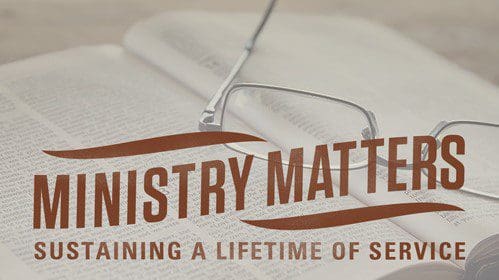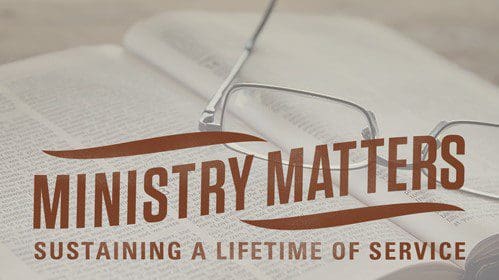
The Hike
Tears
Lamentations 3:1–24

A lament is a long and loud cry that ascends to God from a person who endures unspeakable pain or loss. You find laments in the book of Job and in the Psalms, and God has given us an entire book of the Bible called Lamentations, which describes in excruciating detail the grief and sorrow that resulted from the destruction of Jerusalem. Lamentations is the cry of a broken heart. It is God’s gift to all who grieve.
The smoke was still rising from the ashes, as Jeremiah picked his way through the rubble of the once great city, and what he saw broke his heart. The city that had once thrived under the blessing of God now seemed like a ghost town: “How lonely sits the city that was full of people!” (Lamentations 1:1).
Jeremiah had the unenviable task of being God’s mouthpiece at this desperate time. His ministry began during the reign of Josiah, the young king who led a campaign of religious and moral reform. But Josiah’s son Jehoiakim chose a very different path. He asked for the Word of God to be read to him, then slashed the scroll with a knife, and threw the Scriptures into the fire. It was during the reign of this king who burned the Bible that God’s judgment on His people began.
Nebuchadnezzar, the king of Babylon, laid siege to Jerusalem. And when the people were too weak to defend their city, his army rounded up the most talented people, including a young man called Daniel (whose story we will come to later), and deported them to Babylon.
God’s people endured five disasters—one on top of the other: enemies laid siege to the city (Jeremiah 52:5), the people starved (Lamentations 1:11), the city fell (1:7), then it was occupied (1:5), and the temple was destroyed (4:1).
Those who survived lost their homes, and many of them lost children as well. The youngest would have been the first to die of hunger in the siege. And when the city fell, those who had older children endured the great pain of seeing their sons and daughters marched off into exile, knowing that they would never see them again: “Her children have gone away, captives to the foe” (1:5). Their grief must have been overwhelming.
Grief is the painful process of adjusting to the loss of something or someone you love. It may be the loss of a role or a position that brought you great fulfillment. It could be the loss of the physical ability or mental agility to pursue something you greatly enjoyed. Or it could be the loss of a dearly loved person without whom life will never be the same.
Soaked in Tears
Lamentations is a book soaked in tears: “She weeps bitterly in the night, with tears on her cheeks” (1:2); “My eyes flow with tears; for a comforter is far from me” (1:16); “My eyes are spent with weeping… because infants and babies faint in the streets of the city” (2:11). The references to tears continue throughout the book.
Tears are the shuddering of the body at the pain of the soul. They are a gift from God because they act as a release valve for your pain. God has given you a Savior who knows what it is to weep, so let your tears flow and don’t hold them back.
Lamentations puts grief into words, and it models how grieving people pour over every detail of their loss. Help comes from facing the dark corners of your grief, and bringing it out into the light of God’s healing presence in the company of others who love you.
The Hand of God
The people who suffered in Lamentations believed that God is sovereign. When they suffered, they did not say, “This has nothing to do with God.” They said, “Though he cause grief, he will have compassion according to the abundance of his steadfast love” (Lamentations 3:32).
Believing that God controls all things raises hard questions that we cannot answer. When our Lord Jesus suffered on the cross, He cried out, “Why… ?” (Matt. 27:46). And even to Him, heaven was silent. So when the agonized “Why?” rises from your soul, remember that Jesus has been there and that He too had to trust the Father without being given an answer.
So what are you to do with the grievance you may feel toward God?
In Lamentations 3, there are nineteen grievances or complaints against the Lord. Notice the repeated use of the word He, referring to the Lord: “He has walled me about so that I cannot escape” (Lamentations 3:7); “He shuts out my prayer” (3:8); “He has filled me with bitterness” (3:15). It’s not just that “God has allowed these things”; it’s that “God has done them! He has brought them about!”
Grievance toward God is not an expression of unbelief. In a profound way, it can be an expression of faith. The people who raised so many complaints against God in Lamentations did not believe that what they suffered happened by random chance. They knew that God is sovereign in all things, including the disaster that had befallen them. It was precisely because they believed this that they struggled with grievance toward God.
Somewhere in your life you may face the same struggle. You may find yourself in great darkness. You may feel trapped, weighed down, afraid, and exhausted. And you may feel as if God has turned against you.
Lamentations models what you should do. God wants you to bring your grievance to Him. A friend or a pastor may be able to help you with this, but what matters most is that you tell God the truth about what you are feeling. Don’t complain about God behind His back! Tell Him your grievance face to face. There is no better place to pour out your complaint than in the presence of God.
Hope for Today
In a book about grief, you might expect to find a great deal about the hope of heaven. But there is very little about heaven in Lamentations. Why? The fulfillment of God’s ultimate purpose is very wonderful, but heaven may seem a long way from the painful reality faced by a grieving person. When you grieve, your first question is “How am I going to get through today?” Heaven is not the answer to that question; God’s mercy is.
“This I call to mind, and therefore I have hope: The steadfast love of the LORD never ceases; his mercies never come to an end; they are new every morning; great is your faithfulness. ‘The LORD is my portion,’ says my soul, ‘therefore I will hope in him’” (Lamentations 3:21–24).
God’s mercy will be sufficient to get you through today. And when you wake up tomorrow, His love and mercy will be waiting for you. Christ will give you the strength you need to match the load you carry at any given time.
Is God Really for Me?
A question that often rises in the mind of a grieving person is “How can I believe that God is for me when He has brought such pain into my life?”
The answer to this question lies in “the man,” who is introduced to us in Lamentations 3:1: “I am the man who has seen affliction under the rod of his wrath.” Who is this man?
The man in Lamentations clearly anticipates our Lord Jesus Christ.
The man said, “My soul is bereft of peace” (3:17). And in the garden of Gethsemane, Jesus said, “My soul is very sorrowful, even to death” (Mark 14:34).
The man said, “I have become the laughingstock of all peoples, the object of their taunts all day long” (Lamentations 3:14). And of Jesus, we read: “Kneeling before him, they mocked him, saying, ‘Hail, King of the Jews!’” (Matthew 27:29).
The man said, “He has driven and brought me into darkness without any light” (Lamentations 3:2). And when Jesus hung on the cross, darkness covered the whole land (Matthew 27:45).
The man said, “Though I call and cry for help, he shuts out my prayer” (Lamentations 3:8). And on the cross Jesus cried out, “My God, my God, why have you forsaken me?” (Matthew 27:46).
How extraordinary that when Pontius Pilate put Jesus on display before the crowds, with that crown of thorns on Jesus’ head, he said, “Behold the man!” (John 19:5). He would have had no idea that, in saying this, he was fulfilling Lamentations 3:1.
Jesus is the man anticipated in Lamentations. The Son of God became the Man of Sorrows, and He is “acquainted with grief” (Isaiah 53:3). Because Jesus has suffered, He is able to help us when we suffer.
A suffering world needs a suffering Savior, but we also need a Savior who has triumphed over suffering. Suffering was not the end for Jesus. He came through it and triumphed over it in His resurrection. And this Savior offers Himself to you: “Weeping may tarry for the night, but joy comes with the morning” (Psalm 30:5), and one day God will wipe away all tears from your eyes.
Opened
When you pass through the valley of sorrow and loss, you are in a place where Christ can be found. The Savior knows what it is to walk sorrow’s path, and He is well acquainted with grief. Any path on which you come closer to Jesus will be blessed, even if it is a path you would never have chosen to walk.
Lamentations 3:1–24
Great Is Your Faithfulness
1 I am the man who has seen affliction
under the rod of his wrath;
2 he has driven and brought me
into darkness without any light;
3 surely against me he turns his hand
again and again the whole day long.
4 He has made my flesh and my skin waste away;
he has broken my bones;
5 he has besieged and enveloped me
with bitterness and tribulation;
6 he has made me dwell in darkness
like the dead of long ago.
7 He has walled me about so that I cannot escape;
he has made my chains heavy;
8 though I call and cry for help,
he shuts out my prayer;
9 he has blocked my ways with blocks of stones;
he has made my paths crooked.
10 He is a bear lying in wait for me,
a lion in hiding;
11 he turned aside my steps and tore me to pieces;
he has made me desolate;
12 he bent his bow and set me
as a target for his arrow.
13 He drove into my kidneys
the arrows of his quiver;
14 I have become the laughingstock of all peoples,
the object of their taunts all day long.
15 He has filled me with bitterness;
he has sated me with wormwood.
16 He has made my teeth grind on gravel,
and made me cower in ashes;
17 my soul is bereft of peace;
I have forgotten what happiness is;
18 so I say, “My endurance has perished;
so has my hope from the LORD.”
19 Remember my affliction and my wanderings,
the wormwood and the gall!
20 My soul continually remembers it
and is bowed down within me.
21 But this I call to mind,
and therefore I have hope:
22 The steadfast love of the LORD never ceases;
his mercies never come to an end;
23 they are new every morning;
great is your faithfulness.
24 “The LORD is my portion,” says my soul,
“therefore I will hope in him.”
(ESV)
Use these questions to further engage with God's Word. Discuss them with another person or use them as personal reflection questions.
Take the First Step to Open Your Bible
Join 35,000+ people who get ‘Open Today’. Every Wednesday you’ll get resources designed to inspire, encourage, and challenge you in opening your Bible.


